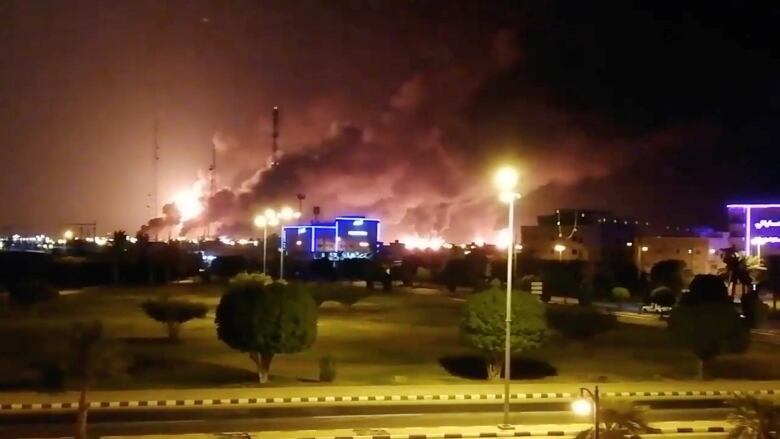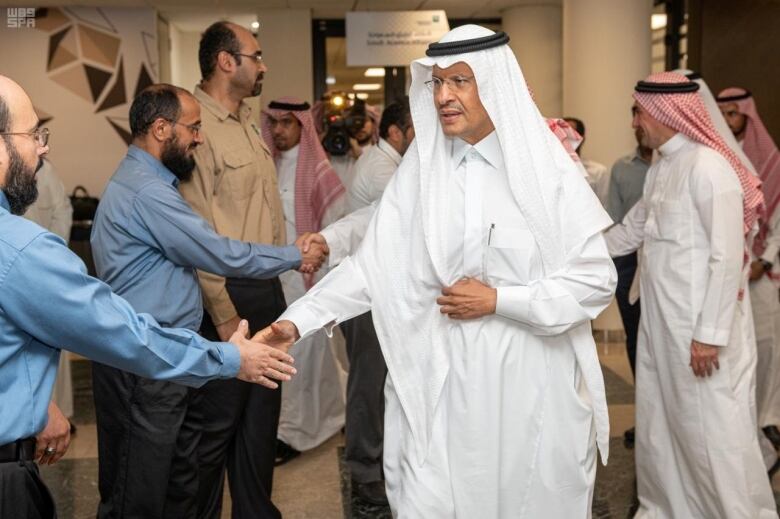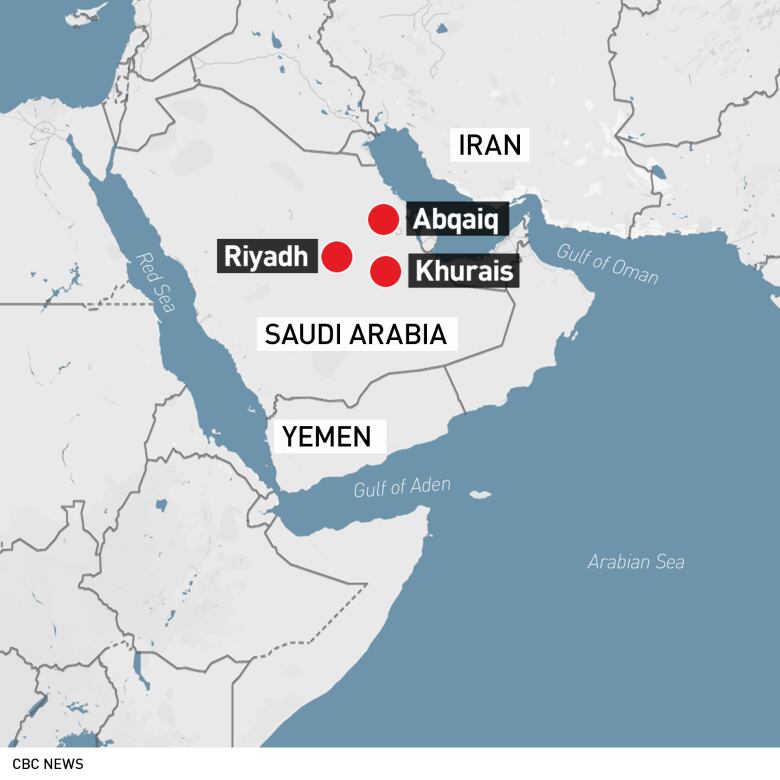Saudi energy minister says oil production will be back to normal by end of September
One source says Saudi production could be back on line within weeks

Saudi Arabia's new energy ministerPrince Abdulaziz bin Salmansaid Tuesday that his country's oil market will be fully back online by the end of September.
Speaking at a press conference in Jeddah Tuesday,Prince Abdulazizsaid production would be at9.890 million barrels per day in October. He also said that 50 per cent of the production cut resulting from a recent drone attack has already been restored.
The kingdomsought to calm markets on Tuesday after an unprecedented attack on its oil facilities, with sources saying output was recovering much more quickly than initially forecast and could be fully back in two or three weeks.
Saturday's attacks raised the spectre of a major supply shock in a market that in recent months has been preoccupied with demand concerns and faltering global growth. Oil surged as much as 20 per cent at one point on Monday.
Brent crude was down $3.72 US, or 5.4 per cent, at $65.30 a barrel by 8:50a.m. ET. West Texas Intermediate was down $2.40, or 3.8 per cent, at $60.50 a barrel.
In the immediate fallout from the attacks, state-owned producer Saudi Aramco told some Asian refiners it would meet its oil commitments, albeit with changes, sources said.
We need a proper damage assessment, we need to see a recovery plan.Samuel Ciszuk, analyst
"All eyes will be on the Saudi news conference," said Samuel Ciszuk, founding partner at Stockholm-based ELS Analysis.
"We need a proper damage assessment, we need to see a recovery plan. Before that, we don't really know how much oil will be offline for how long, and that's the basic question people having been posing since Saturday."
Biggest single oil disruption in 50 years
The attacks on crude-processing facilities at Abqaiq and Khurais resulted in the largest single supply disruption in half a century, and threw into question Saudi Arabia's status as supplier of last resort.
Some Asian refineries are expected to receive their allocated volumes for October, while other importers are being told of delays or being offered alternative grades.

The prospect of oil releases from strategic inventories in the United States, the International Energy Agency and countries such as Japan have weighed on prices, but the geopolitical threat of retaliation is causing concerns.
U.S. Vice-President Mike Pence said on Tuesday the United States was evaluating evidence on the attacks and stands ready to defend its interests and allies in the Middle East.
Secretary of State Mike Pompeo was travelling to Saudi Arabia on Tuesday, Pence said in a speech at the Heritage Institute think-tank. If Iran conducted Saturday's attacks to pressure U.S. President Donald Trump to back off his sanctions regime against Tehran, they will fail, Pence said.
Relations between the United States and Iran have deteriorated since Trump pulled out of the Iran nuclear accord last year and reimposed sanctions on its oil exports.

Tehran rejects the charges it was behind the strikes and on Tuesday ruled out talks with Trump. Saudi King Salman meanwhile called on governments around the world to confront the threats to oil supplies.
Washington also wants to pressure Tehran to end its support for regional proxy forces, including in Yemen where Saudi forces have been fighting Iran-backed Houthis for four years. The Houthis claimed responsibility for Saturday's attacks.
"It is fair to say that a price floor of around $60 a barrel [for]Brent has been placed under the market over the weekend," oil broker PVM said.












_(720p).jpg)


 OFFICIAL HD MUSIC VIDEO.jpg)
.jpg)



























































































